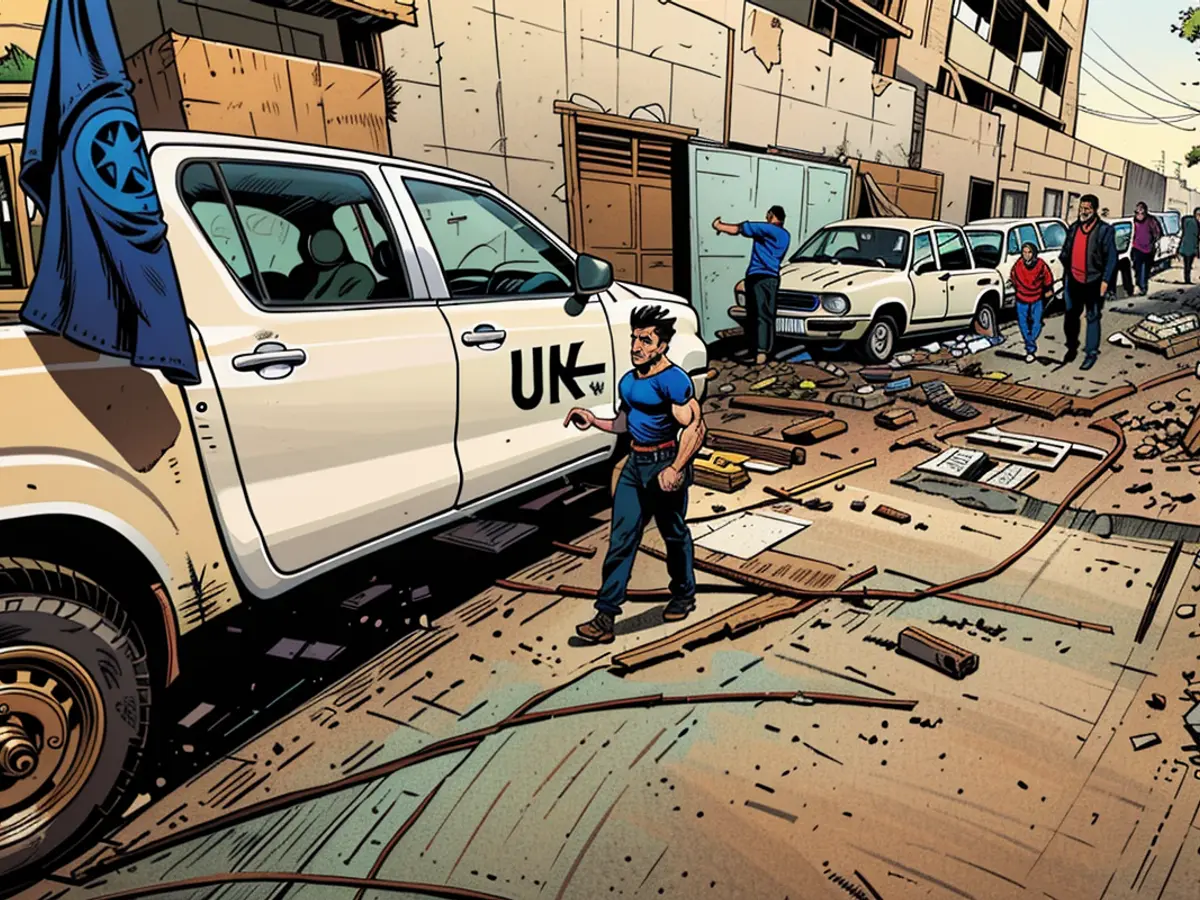Inquiries and Responses Summarized: - School Attack in Gaza - Implications under International Humanitarian Law
A deadly Israeli strike on a school sheltering civilians in the Gaza Strip has sparked global outrage. Israel claims Hamas militants were concealed there. What's permissible and what's not based on international law?
May Hamas troops take sanctuary in the Gaza Strip at civilian establishments like schools or healthcare facilities and initiate assaults from there?
Absolutely not. According to the International Criminal Court's Statute, "employing the presence of a civilian person or another protected person to shield military operations from specific locations, areas, or forces" is a grave infraction of international law in wartime. In humanitarian law, it's restricted to, "It's forbidden to exploit the presence of civilians to shelter military objectives or to control the movements of the civilian population for the purpose of shielding military objectives or covering military operations."
What if they insist on doing it?
The International Committee of the Red Cross (ICRC), responsible for monitoring adherence to international law, maintains that a hospital or a school can become a legitimate target for attack if it contributes to the enemy's military operations and its demolition grants a significant military advantage to the invading party. However, these facilities should be protected under humanitarian law provided they're not utilized as military bases, weapons depots, or refuges for healthy soldiers/fighters.
Is a hospital or a school a lawful goal for an assault?
Firstly, it's evident that humanitarian law remains applicable even when one party disregards it, for instance, by utilizing civilians as barriers from attacks. In November 2023, UN High Commissioner for Human Rights Volker Türk asserted, "The actions of one party do not absolve the other party of its commitments under humanitarian law."
The decision whether to target a civilian facility where combatants are stationed is always determined by the particular situation, considering if the potential damage outweighs the potential gain. As the Landesarbeitsgemeinschaft für politische Bildung Baden-Württemberg clarifies, "The principle of proportionality requires that the harm be minimized. (...) As a result, nothing can be attacked that causes unnecessary civilian casualties or damages to civilian targets, if the magnitude of these losses exceeds the anticipated concrete and direct military benefit."
UN Human Rights Office's perspective on the scenario
"It's clear that some on both sides view the killing of civilians as either acceptable collateral damage or a potent military tool," declared Türk in November 2023. "This is a humanitarian and human rights disaster. It signifies the breakdown of the most fundamental respect for human values."
Read also:
- The attack on the school in Nuseirat, Gaza Strip, under international law, is a subject of controversy due to alleged presence of Hamas militants.
- The International Committee of the Red Cross (ICRC) emphasizes that hospitals and schools in the Gaza Strip should be protected under humanitarian law, unless they contribute to military operations or house healthy fighters.
- Human rights advocates, such as Volker Türk, UN High Commissioner for Human Rights, have criticized the disregard for international humanitarian law during the Gaza war, stating that it cannot absolve any party from its obligations.
- During the Gaza conflict, allegations of Hamas using civilian establishments like schools and hospitals as shields for military operations have sparked international condemnation.
- According to the International Criminal Court, utilizing civilian persons or facilities to shield military operations is a violation of international law during war, which can lead to grave consequences for those responsible.
- In the Palestinian territories, including the Gaza Strip, both parties to the conflict have been accused of committing human rights violations, including the use of civilian establishments for military purposes.
- In the case of conflict in the Gaza Strip, the principle of proportionality under international humanitarian law dictates that harm should be minimized and the benefit of attacking a civilian facility must outweigh the potential damage or loss of lives.
- A criminal court might consider charging parties responsible for war crimes or violations of international humanitarian law, including the malicious use of civilian establishments to shield military operations, during Israel's Gaza war or any future conflicts.








